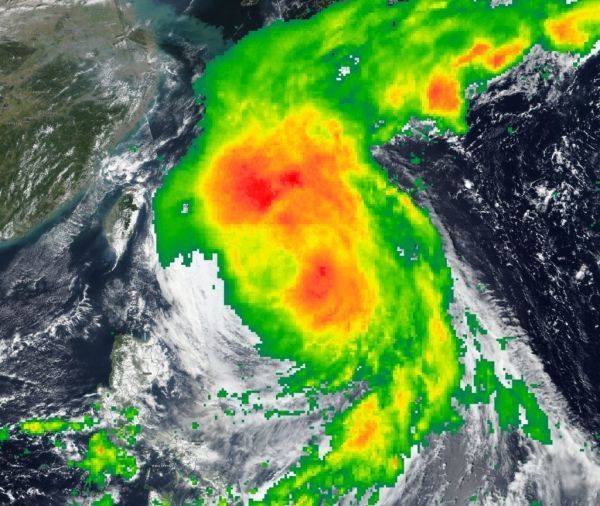Climate change could pose a threat to male fertility – according to new research from the University of East Anglia.
Uncategorised
Escape Responses of Coral Reef Fish Obey Simple Behavioral Rules
Loom-sensitive neural circuits characterized in previous lab studies are shown to underlie complex evasive behaviors observed in a natural environment.
NASA Puts Together a Composite of Tropical Storm Kong-Rey
NASA’s IMERG combines data from many satellites to provide a look at rainfall occurring around the world. Those rainfall data were combined with visible imagery from NASA-NOAA’s Suomi NPP satellite to create a composite or fuller picture of Kong- Rey in the Northwestern Pacific Ocean as it weakened to a tropical storm.
Alpine Ice Shows Three-Fold Increase in Atmospheric Iodine
Analysis of iodine trapped in Alpine ice has shown that levels of atmospheric iodine have tripled over the past century, which partially offsets human-driven increases in the air pollutant, ozone.
More Ships and More Clouds Mean Cooling in the Arctic
With sea ice in the Arctic melting at an alarming rate, opportunities for trans-Arctic shipping are opening up, and by mid-century ships will be able to sail right over the North Pole – something not previously possible for humankind.
Ultra-Thin Transparent Silver Films for Solar Cells
New silver films may boost the efficiency of solar cells and light-emitting diodes. However, they have been difficult to fabricate.










